
William Wayne McMillan Rogers III was an American actor, known for playing the role of Captain "Trapper" John McIntyre in the CBS television series M*A*S*H and as Dr. Charley Michaels on House Calls (1979–1982).

Bremen is a small town in Lincoln County, Maine, United States. The population was 823 at the 2020 census. Located on Muscongus Bay and the Gulf of Maine, it includes the villages of Broad Cove, Turners Corner, Bremen, Medomak and Muscongus. Hog Island is a center and camp for the Maine chapter of the National Audubon Society.

Hiester Richard Hornberger Jr. was an American writer and surgeon who wrote under the pseudonym Richard Hooker. Hornberger's best-known work is his novel MASH (1968), based on his experiences as a wartime United States Army surgeon during the Korean War (1950–1953) and written in collaboration with W.C. Heinz. It was used as the basis for an award-winning, critically and commercially successful movie – M*A*S*H (1970) — and two years later in an acclaimed long running television series (1972–1983) of the same title.

M*A*S*H is an American media franchise consisting of a series of novels, a film, several television series, plays, and other properties, and based on the semi-autobiographical fiction of Richard Hooker.
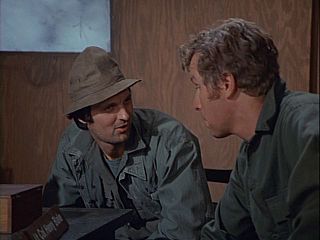
The pilot episode of M*A*S*H, the first episode of the first season was broadcast on September 17, 1972, although the initial script was first written in November 1971. The episode was written by Larry Gelbart and directed by Gene Reynolds, who received the Directors Guild of America Award for it. It was also nominated for two Emmys for its direction and writing.
"Yankee Doodle Doctor" is an episode of the television series M*A*S*H. It was the sixth episode broadcast and aired on October 22, 1972, and it was rerun April 8, 1973. It was written by Laurence Marks and directed by Lee Philips.

"The Late Captain Pierce" is an episode from M*A*S*H. It was the fourth episode of the fourth season and aired on October 3, 1975 (first-run) and April 6, 1976 (repeat). It was written by Glen and Les Charles and directed by Alan Alda.
"Cowboy" was the eighth episode of the M*A*S*H television series. Originally shown on November 12, 1972 and repeated May 6, 1973, it was written by Bob Klane and directed by Don Weis. It is the only first-season episode listed in TV Guide as a "classic episode".
"Henry Please Come Home" was the ninth episode of the first season of the TV series M*A*S*H. It originally aired on November 19, 1972. It was written by Laurence Marks and was directed by William Wiard.
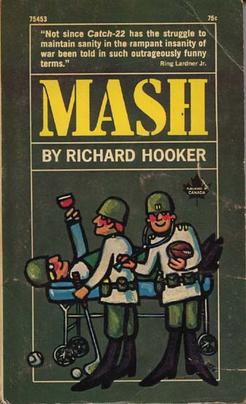
MASH: A Novel About Three Army Doctors is a 1968 novel written by Richard Hooker with the assistance of writer W.C. Heinz. It is notable as the foundation of the M*A*S*H franchise, which includes a 1970 feature film and a long-running TV series (1972–1983). The novel is about a fictional U.S. Mobile Army Surgical Hospital in South Korea during the Korean War.
"For the Good of the Outfit" was the 28th episode of the television series M*A*S*H, the fourth episode of season two. The episode was aired on October 6, 1973.
"Deal Me Out" was the 37th episode of the M*A*S*H television series and the thirteenth of season two. The episode aired on December 8, 1973.
"A Smattering of Intelligence" was the final episode in season two of the American television series M*A*S*H. It first aired on March 2, 1974. The character of Lieutenant Colonel Sam Flagg was first introduced by name in this episode. Winter portrayed a similar character called Captain Halloran eleven episodes earlier in "Deal Me Out", and the two are implied in "Quo Vadis, Captain Chandler?" to have been one and the same. Flagg has any number of aliases.
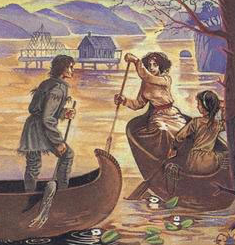
Nathaniel "Natty" Bumppo is a fictional character and the protagonist of James Fenimore Cooper's pentalogy of novels known as the Leatherstocking Tales. He appears throughout the series as an archetypal American ranger, and has been portrayed many times in a variety of media in popular culture.
"The Consultant" is the 17th episode in the third season of the television series M*A*S*H. It originally aired on January 17, 1975. It was written by Robert Klane, from a story by Larry Gelbart, and was directed by Gene Reynolds.
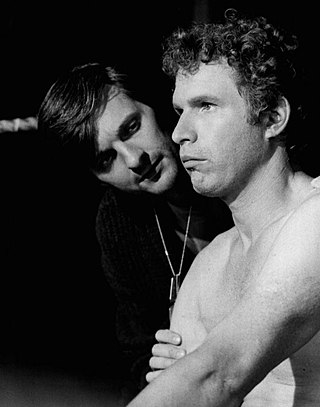
"Requiem for a Lightweight" is the third episode of the television series M*A*S*H. It was first aired on October 1, 1972 and was repeated on December 31, 1972, the first episode of M*A*S*H to do so. In Watching M*A*S*H, Watching America, a sociological examination of M*A*S*H as an illustration of shifting American values in the 1970s and early 1980s, James H. Wittebols cites this episode as an example of the sexual humor which was common in early M*A*S*H episodes, but downplayed later in the program's history.

M*A*S*H is a 1970 American black comedy war film directed by Robert Altman and written by Ring Lardner Jr., based on Richard Hooker's 1968 novel MASH: A Novel About Three Army Doctors. The film is the only theatrically released feature film in the M*A*S*H franchise.
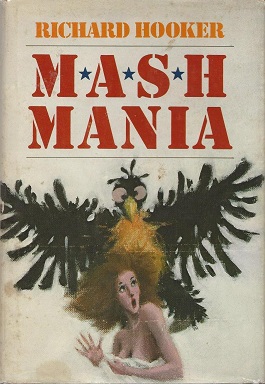
M*A*S*H Mania is a novel written by H. Richard Hornberger under the pseudonym Richard Hooker and originally published in 1977. After a series of M*A*S*H novels that were written by William E. Butterworth but credited to both Hooker and Butterworth, M*A*S*H Mania was his first book since M*A*S*H Goes to Maine (1972). The book, which follows the M*A*S*H characters in their continued post-war adventures in Maine, did not meet the same critical or commercial success as the original novel, MASH: A Novel About Three Army Doctors (1968).











